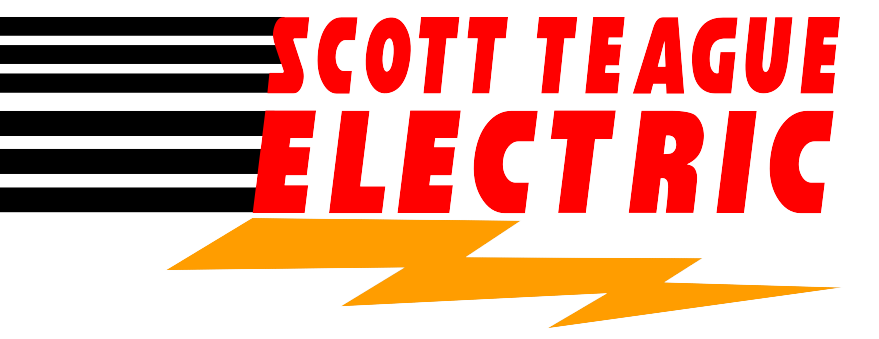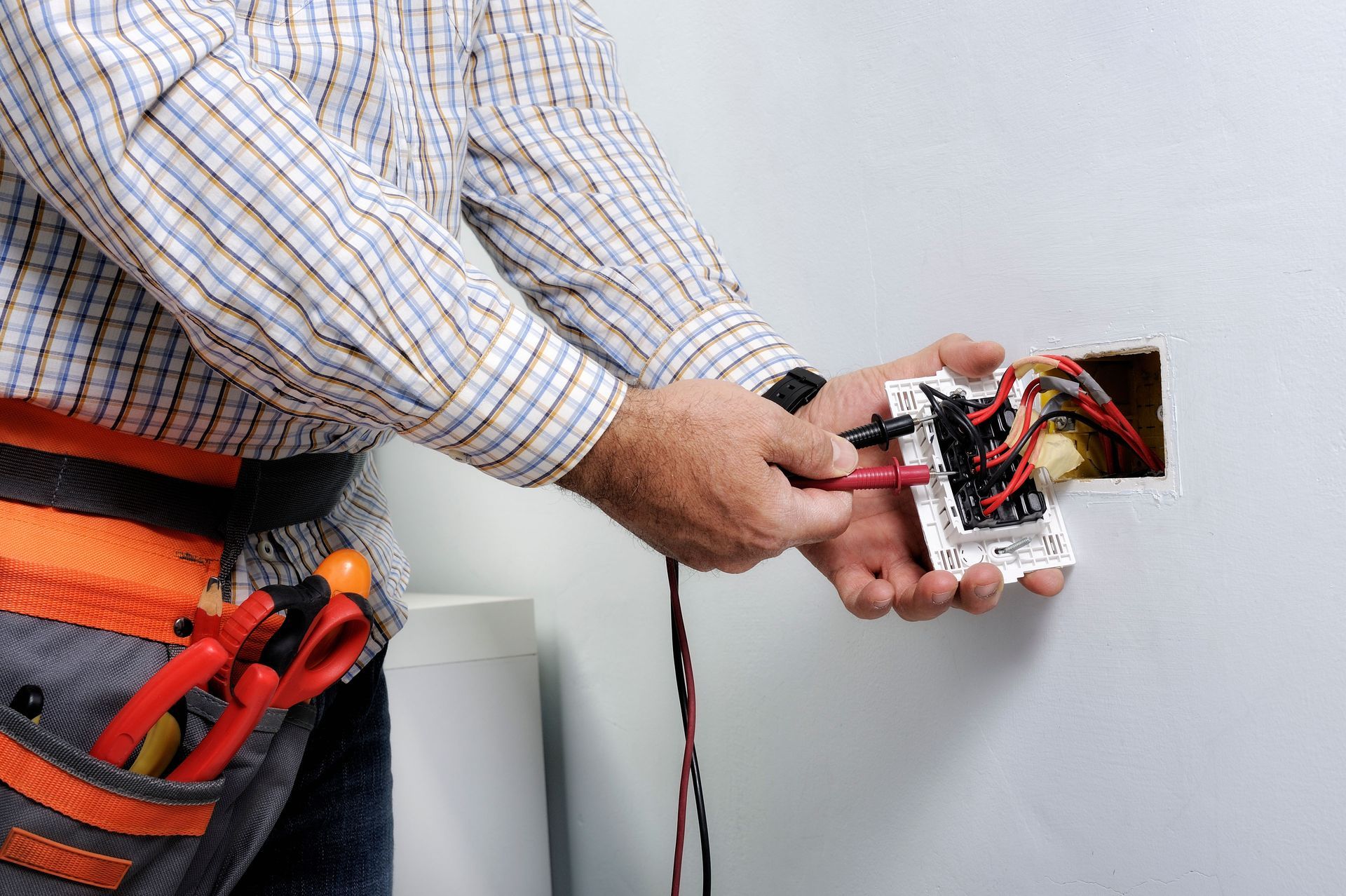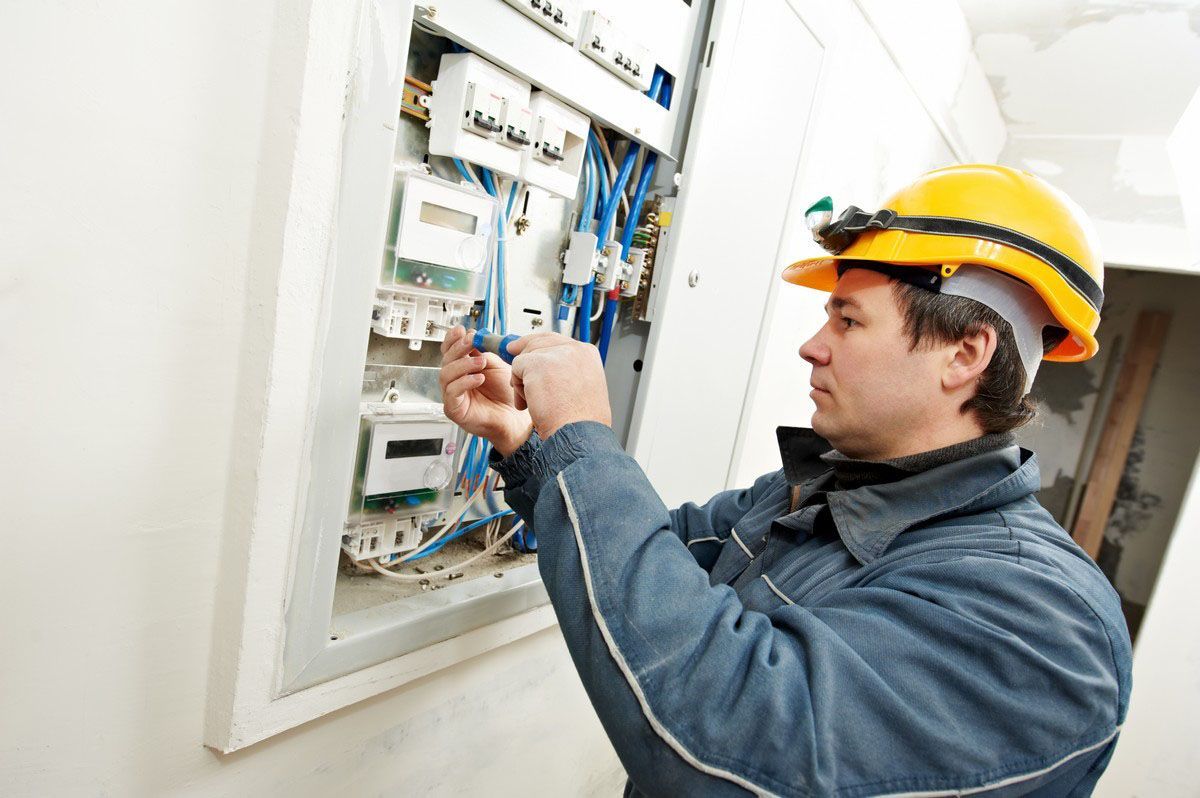Why DIY Electrical Work Usually Ends in a Call to an Electrician
The appeal of DIY electrical work is understandable; saving money and gaining the satisfaction of fixing things yourself can be tempting. However, what often starts as a confident attempt to tackle electrical tasks can lead to complex problems and ultimately, a call to an electrician. According to IBISWorld, as of 2024, there were 245,300 electricians in the U.S. This explores why DIY electrical work frequently ends in professional intervention and highlights the risks and challenges involved.
Understanding Electrical Systems
Electrical systems are intricate frameworks that require a comprehensive understanding to handle safely and effectively. Even seemingly simple tasks involve multiple components like wiring, circuit breakers, and grounding systems, each with its unique requirements. Mistakes in any part can result in malfunctioning systems or more severe issues. The complexity often deters many homeowners and leads them to seek professional help. Additionally, professionals receive extensive training and certification, equipping them with the skills to navigate these complexities safely.
Many homeowners enter DIY electrical work with preconceived notions that wires can be intuitively connected, resulting in functional outcomes. Such misconceptions can be dangerous and costly, as they overlook the technical nature of electrical systems. For instance, confusing wire colors or connectors can lead to inefficient systems or electrical hazards. Clarifying these misconceptions is essential for anyone considering DIY projects. Those not well-versed in electrical codes and techniques may inadvertently cause more harm than good, reinforcing the necessity of professional intervention.
Proper diagnosis is crucial in electrical work, as it determines the correct course of action needed to solve an issue. Erroneous assumptions can lead to incorrect fixes, ultimately exacerbating existing problems. Trained electricians have the expertise to accurately diagnose issues through standard testing and inspections. This expertise prevents undue expenses and ensures that underlying problems are addressed. Proper diagnosis is often vital in preventing minor discrepancies from evolving into significant faults needing far greater repair efforts.
Safety Concerns and Risks
Electric shock is one of the most immediate and serious risks associated with DIY electrical work. Lack of knowledge about safe handling practices and the presence of live wires significantly increase the likelihood of experiencing a shock. Electricians undergo rigorous safety training to minimize these risks while working. They also use specialized equipment to ensure safe handling procedures, reducing the potential for fatal incidents. Homeowners without proper training are at far greater risk of injuring themselves owing to a misunderstanding of safety protocols necessary in handling electricity.
Improper DIY electrical work can lead to fire hazards, as faulty wiring or overloading circuits can easily ignite fires. The use of incorrect materials or wrong installation practices elevates these risks. Experienced electricians are trained to implement fire prevention measures through careful planning and execution. They also ensure that national and local fire safety codes are followed, significantly reducing the risk of electrical fires in the home. Avoiding these hazards is vital because electrical fires spread rapidly and are difficult to contain, potentially causing catastrophic damage.
DIY electrical projects involve a plethora of legal considerations that homeowners must navigate. Undertaking electrical work without proper certification often violates building codes and safety regulations. Such violations can result in legal liabilities if something goes wrong, especially if an unlicensed repair leads to injury or property damage. Professional electricians carry liability insurance and work under strict legal guidelines that protect homeowners from these potential legal pitfalls. By relying on professionals, homeowners can ensure that their electrical work is both legally reputable and safely completed.
Common DIY Mistakes
Misunderstanding wiring configurations is a prevalent mistake among DIY enthusiasts venturing into electrical repairs. Homeowners often equate matching wire colors with proper connections, overlooking the nuances of different wiring systems. Mistaking configurations can lead to short circuits or faulty appliances, presenting considerable risks. Electricians are adept at understanding and deploying correct wiring configurations, ensuring systems function optimally. Well-executed configurations enhance overall safety and efficiency, preventing costly mistakes from escalating into critical failures.
Grounding is a fundamental aspect of electrical work, vital to ensuring the safety and stability of electrical systems. Improvised grounding techniques commonly practiced by DIYers can fail to maintain electrical safety, exposing homes to potential hazards. Conversely, experienced electricians follow standardized grounding practices, ensuring integrity and safety. Proper grounding prevents electrical overloads from causing shocks or equipment damage. Therefore, adherence to correct grounding is necessary to maintain a safe, compliant home electrical environment.
Rushing projects and skipping critical steps is a common pitfall for inexperienced individuals working on electrical systems. Simplifying procedures to save time often incurs unintended consequences, including increased danger and decreased effectiveness. Professionals follow meticulous step-by-step protocols, safeguarding the process against missed details. This diligence is particularly important in complex systems where errors can have severe repercussions. The reliability and thoroughness of professional services are essential factors ensuring successful and safe electrical work.
Cost Implications
While DIY electrical projects may initially appear cost-effective, the long-term financial implications often tell a different story. Amateur repairs can lead to recurring issues requiring repeated interventions, accumulating significant costs over time. Professional electricians charge between $50 and $130 per hour, with service fees covering initial assessments and basic repairs. Despite initial expenses, these services relieve homeowners from potential future financial burdens. Ensuring tasks are completed correctly the first time negates recurring costs, proving more affordable long-term.
Incorrect DIY electrical work often necessitates further repairs or replacements, incurring additional expenses. Components damaged through improper repairs can deplete homeowners' budgets over time. Electricians offer services including thorough inspections and evaluations, accurately diagnosing issues, and executing precise repairs. Such expert interventions mitigate unnecessary repair or replacement costs, extending the lifespan of electrical systems. Proper maintenance and repair conducted by professionals facilitate smarter financial decision-making for homeowners.
Electing to conduct DIY electrical repairs can have implications for home insurance policies. If a subsequent electrical fault results in damage or injury, insurance providers may refuse coverage if unlicensed repairs were made. Professional electricians ensure all work complies with local codes and building standards, maintaining the integrity of insurance policies. This assurance protects homeowners from potential financial liability, helping avoid out-of-pocket expenses. Utilizing professional services secures the homeowner’s position in potential insurance claims.
Expert Knowledge and Skills
Professional electricians possess expertise acquired through extensive training and experience, essential in performing complex electrical work. Their skills encompass understanding advanced concepts and applying them accurately in practice. This expertise is necessary for working within the intricate frameworks of modern electrical systems, ensuring reliable installation and maintenance. Electricians provide solutions rooted in professional knowledge, preventing system failures and ensuring efficient operation. When facing electrical challenges, leveraging expert knowledge significantly enhances outcomes and safety.
Commercial tools and specialized equipment are pivotal in conducting electrical work effectively and safely. Homeowners typically lack access to high-quality, calibrated instruments necessary for advanced tasks. Professional electricians utilize industry-grade tools, ensuring precision and accuracy in installations and repairs. These tools facilitate complex diagnostics and repairs, enhancing project outcomes and streamlining processes. Access to professional-grade equipment underscores the importance of engaging electricians for complex electrical tasks beyond the casual DIY capacity.
Electricians are well-versed in navigating both national and local building codes and safety regulations, ensuring projects meet these standards. Compliance with electrical codes minimizes the risk of faults or safety hazards while ensuring legal procedures are followed. Adhering to standards prevents future complications during insurance claims or property sales, asserting the credibility of professional interventions. Avoiding penalties and fostering safe environments hinges upon maintaining compliance with electrical codes. Consequently, employing professional services assures homeowners of adherence to legal and safety standards.
While attempting DIY electrical work can be appealing for its potential cost savings and simple fixes, the risks and complexities often outweigh the benefits. Understanding the intricacies of electrical systems, recognizing safety concerns, and knowing when to call a professional are crucial. Ultimately, hiring a qualified electrician not only ensures safety and compliance but also provides peace of mind, making it a wise choice for many homeowners. For more information about the services that we offer, reach out to our incredible team at Scott Teague Electric today!



Share On: